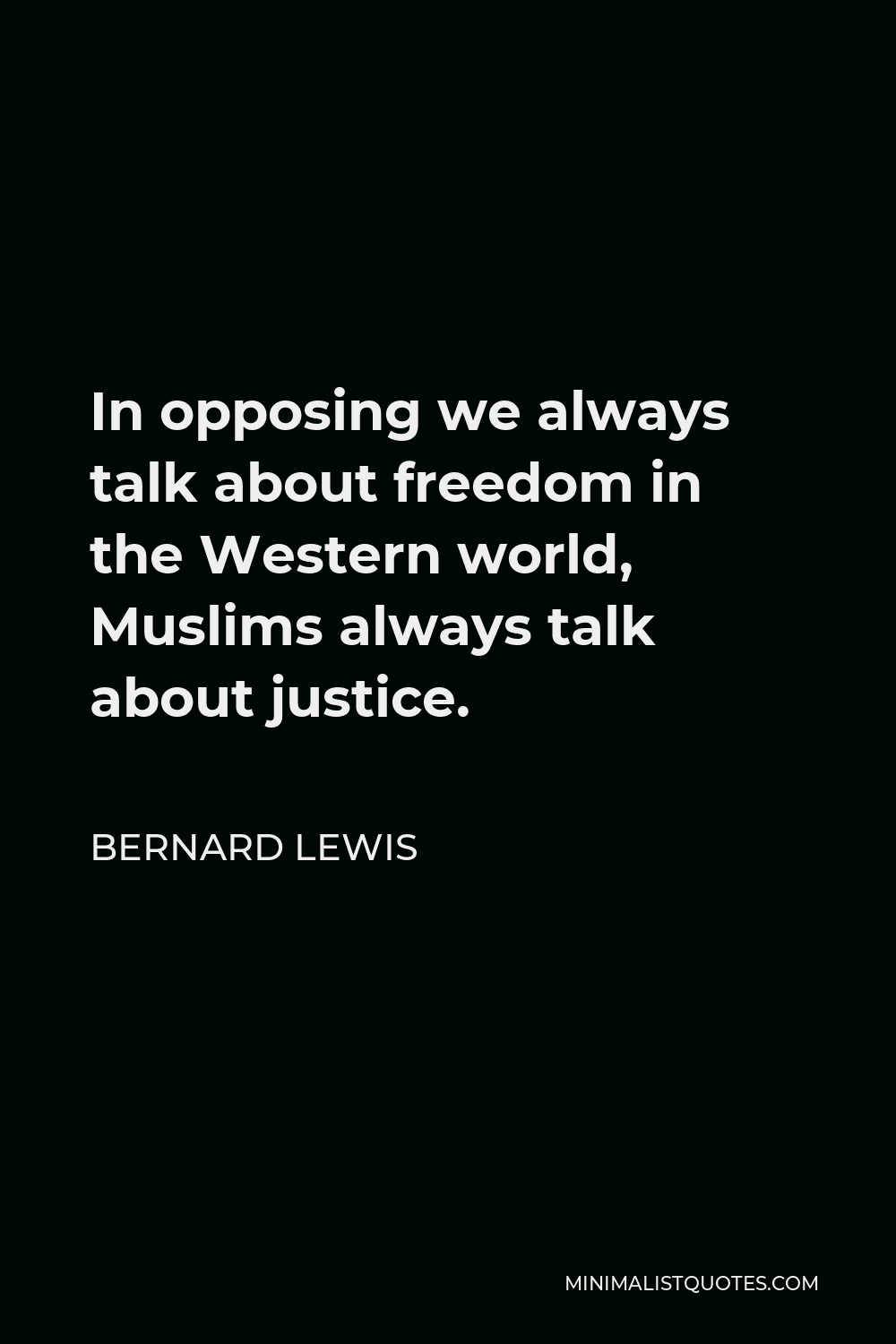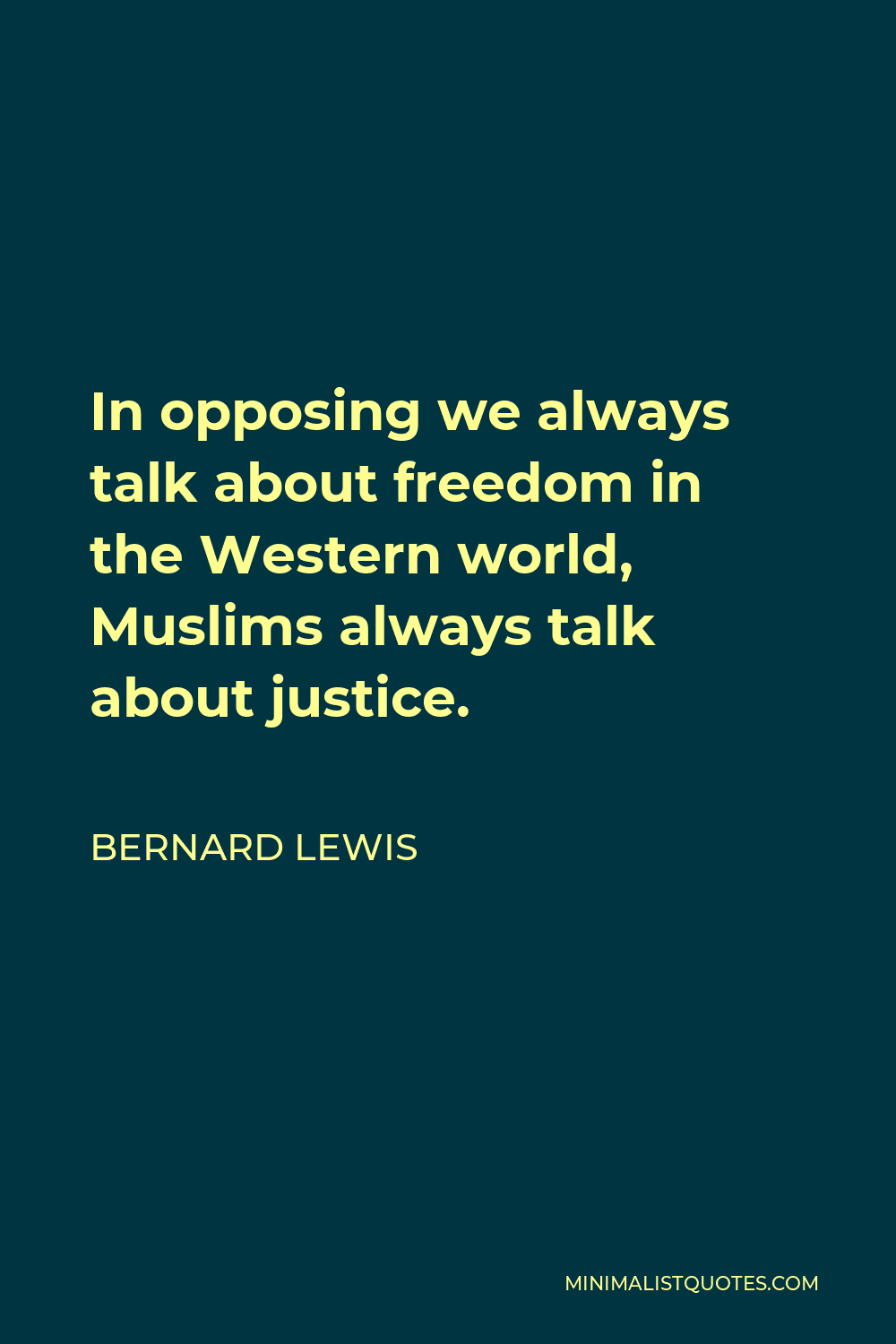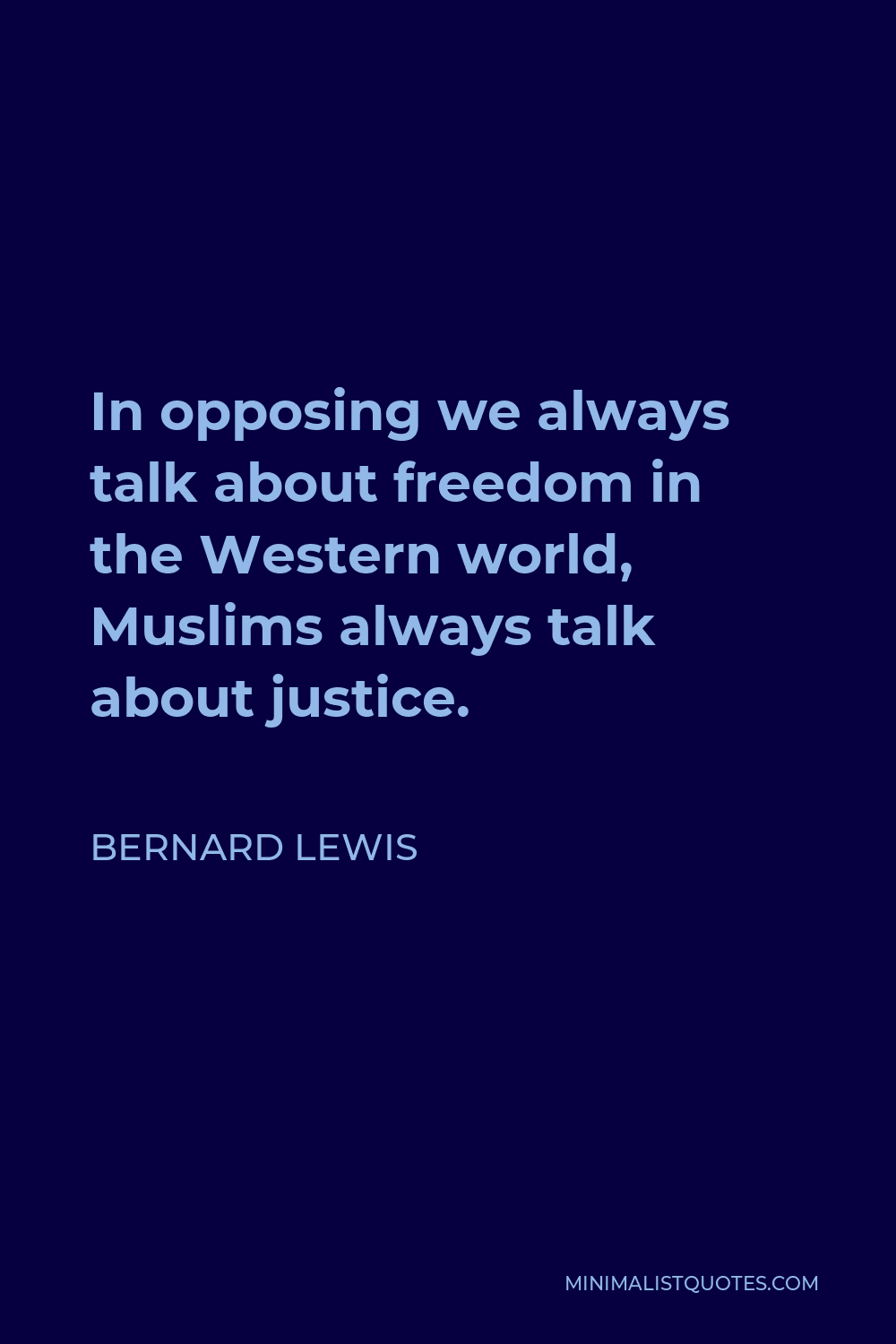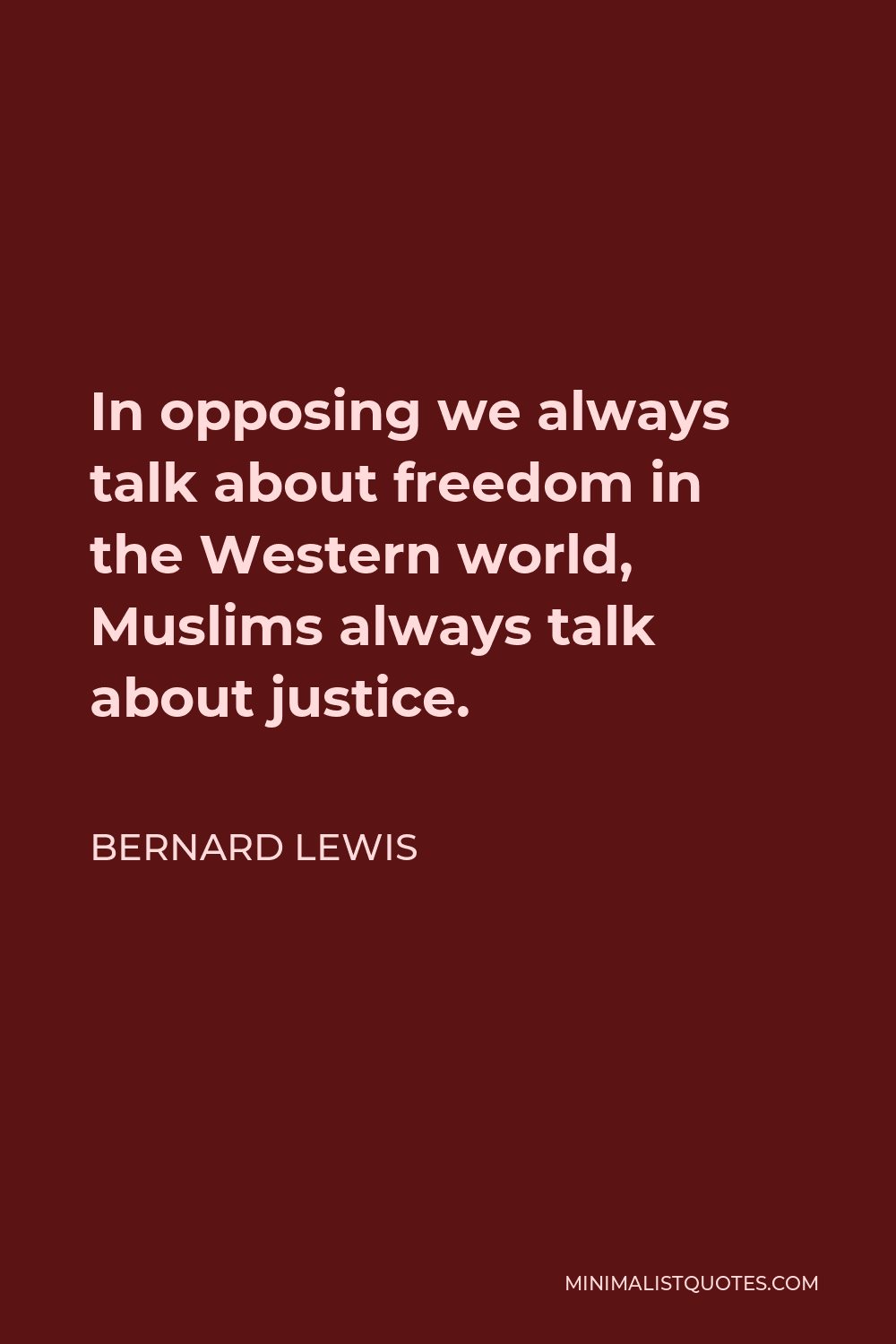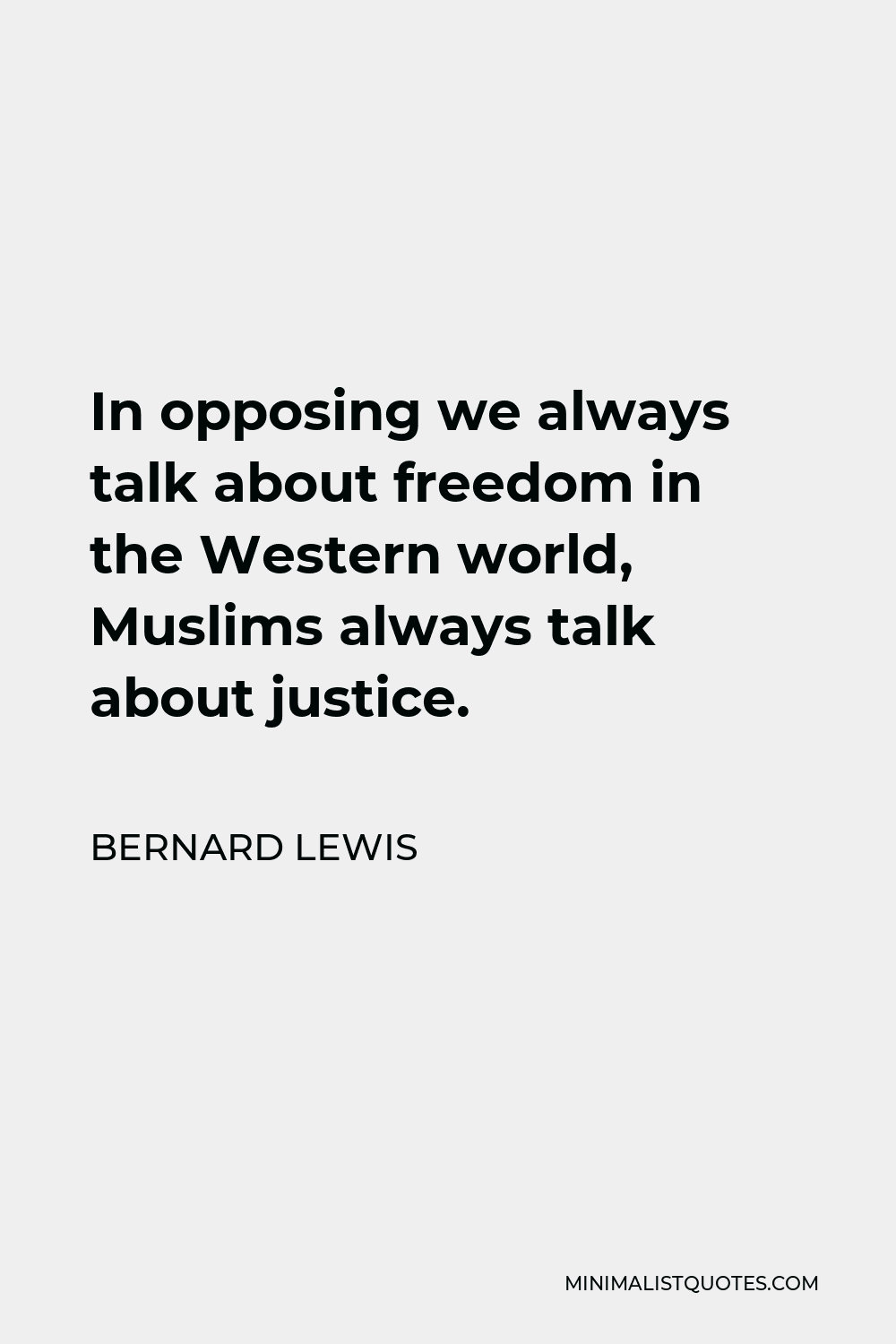During the first formative centuries of its existence, Christianity was separated from and indeed antagonistic to the state, with which it only later became involved.
BERNARD LEWISIn opposing we always talk about freedom in the Western world, Muslims always talk about justice.
More Bernard Lewis Quotes
-





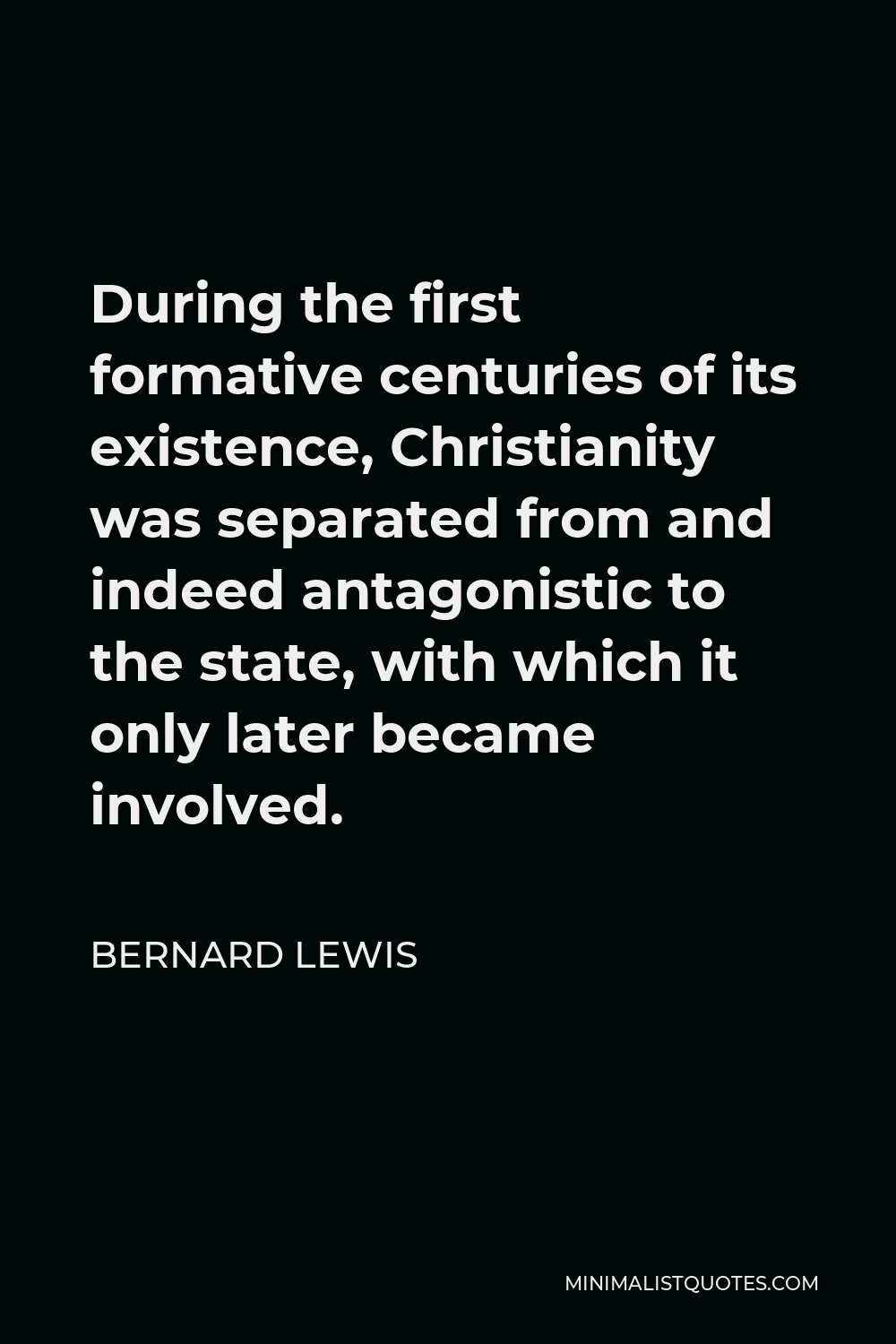
-





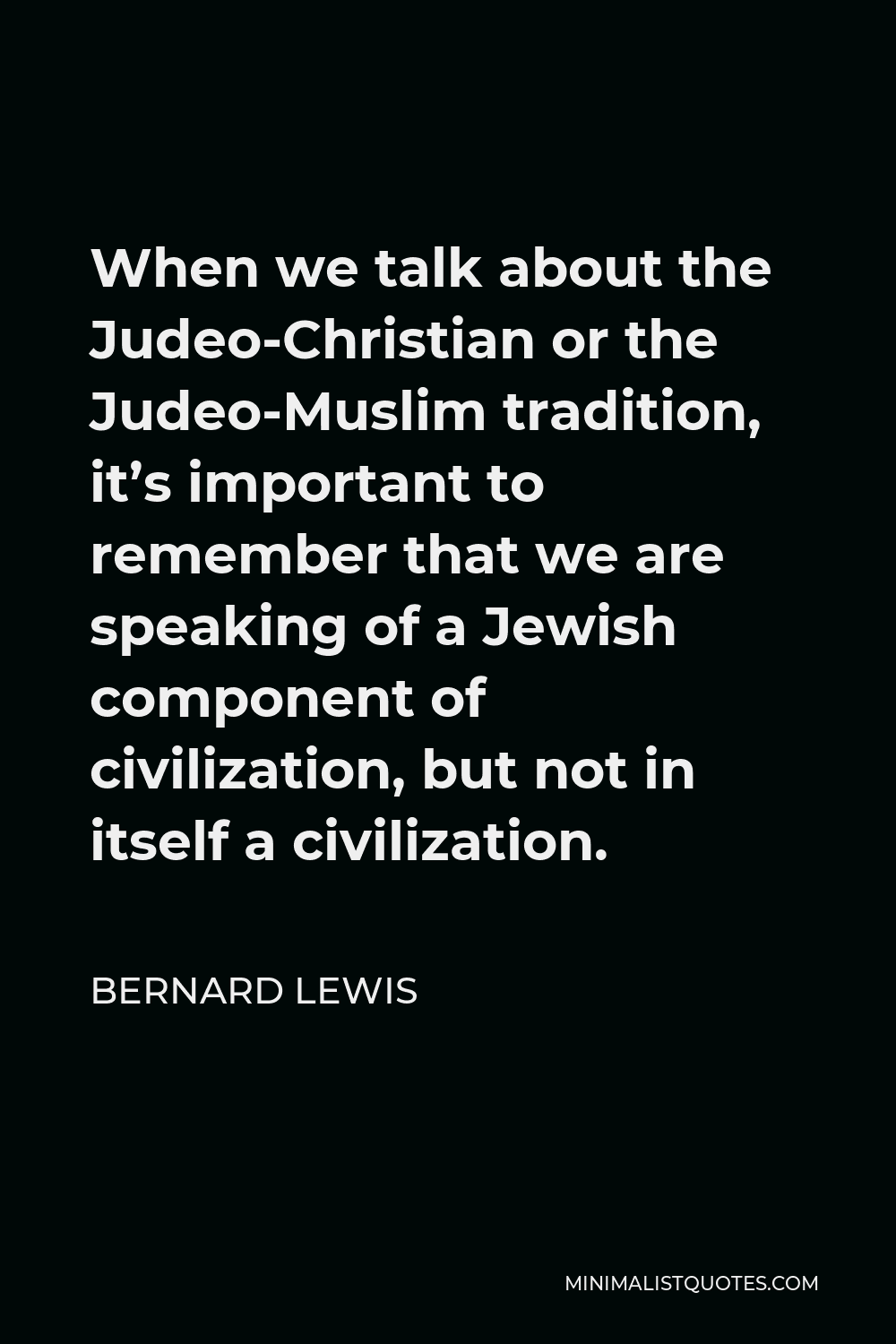
When we talk about the Judeo-Christian or the Judeo-Muslim tradition, it’s important to remember that we are speaking of a Jewish component of civilization, but not in itself a civilization.
BERNARD LEWIS -





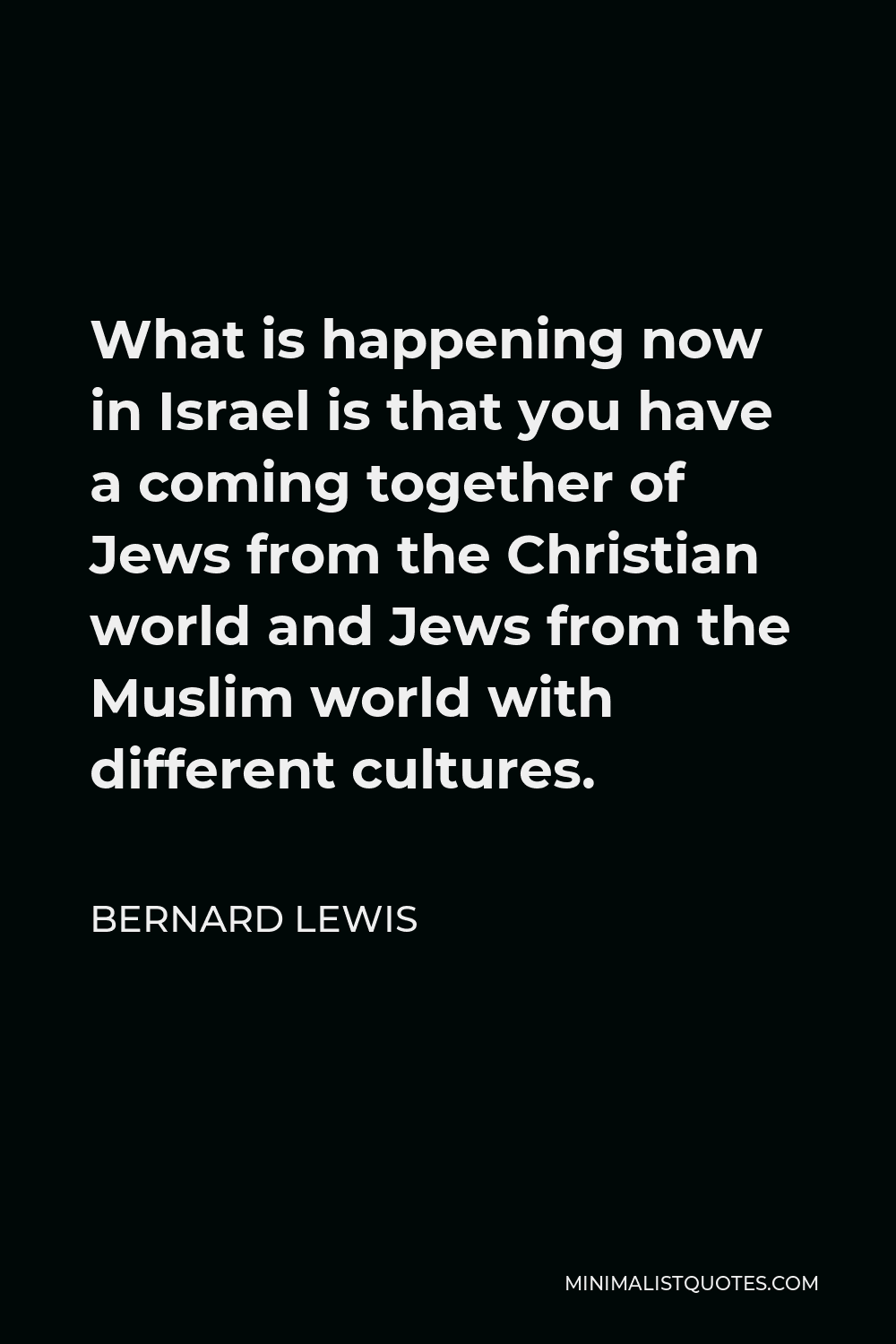
What is happening now in Israel is that you have a coming together of Jews from the Christian world and Jews from the Muslim world with different cultures.
BERNARD LEWIS -





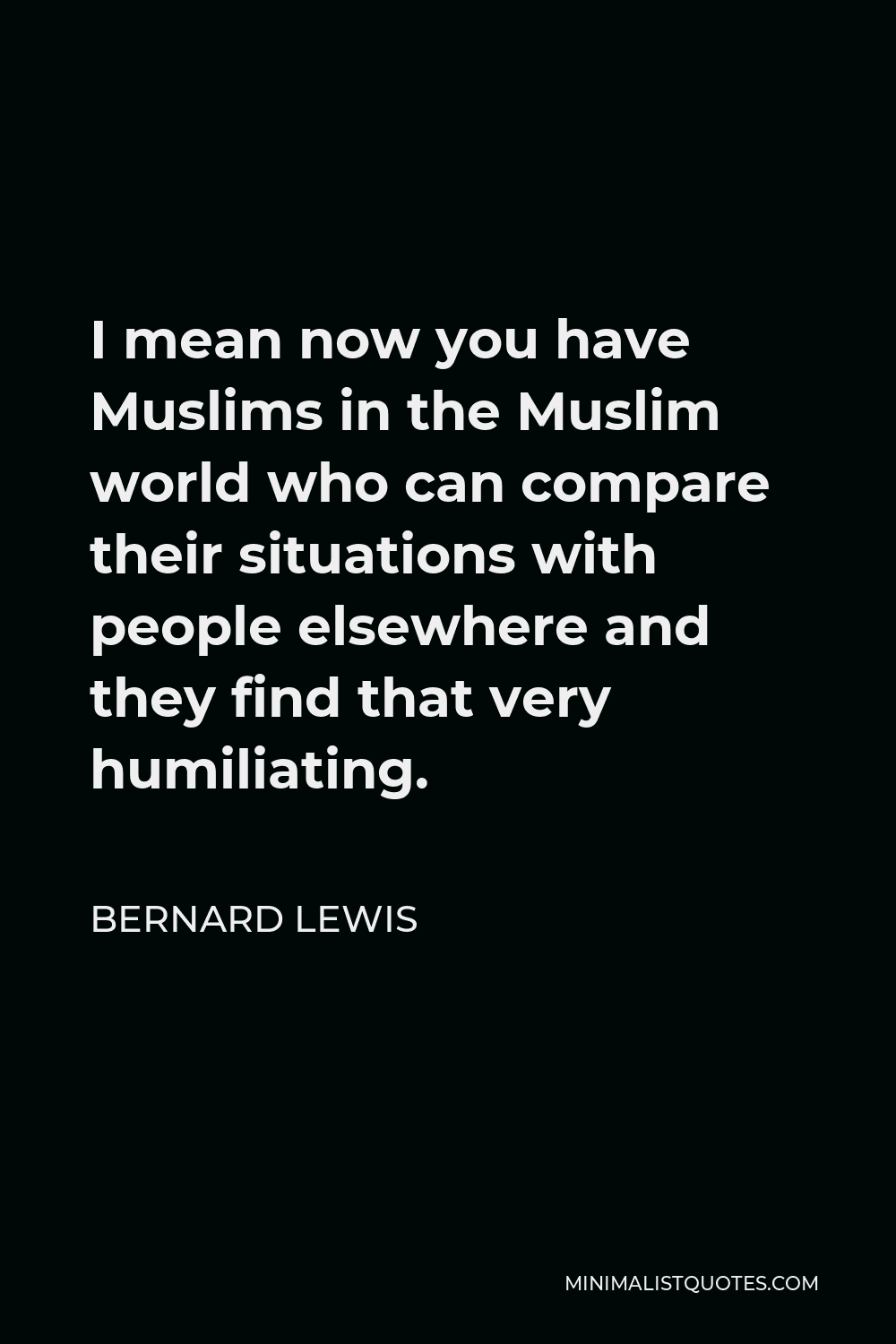
I mean now you have Muslims in the Muslim world who can compare their situations with people elsewhere and they find that very humiliating.
BERNARD LEWIS -





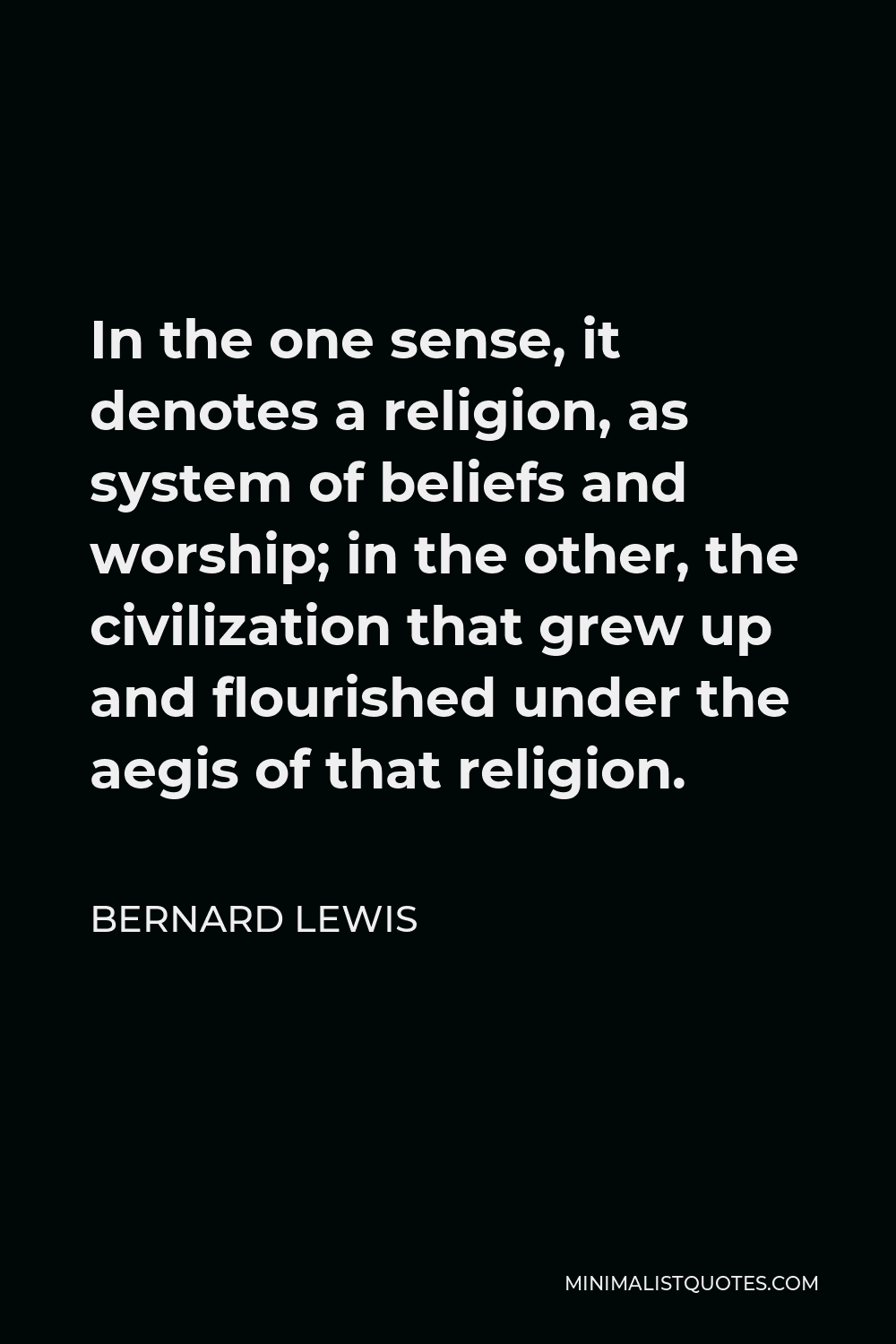
In the one sense, it denotes a religion, as system of beliefs and worship; in the other, the civilization that grew up and flourished under the aegis of that religion.
BERNARD LEWIS -





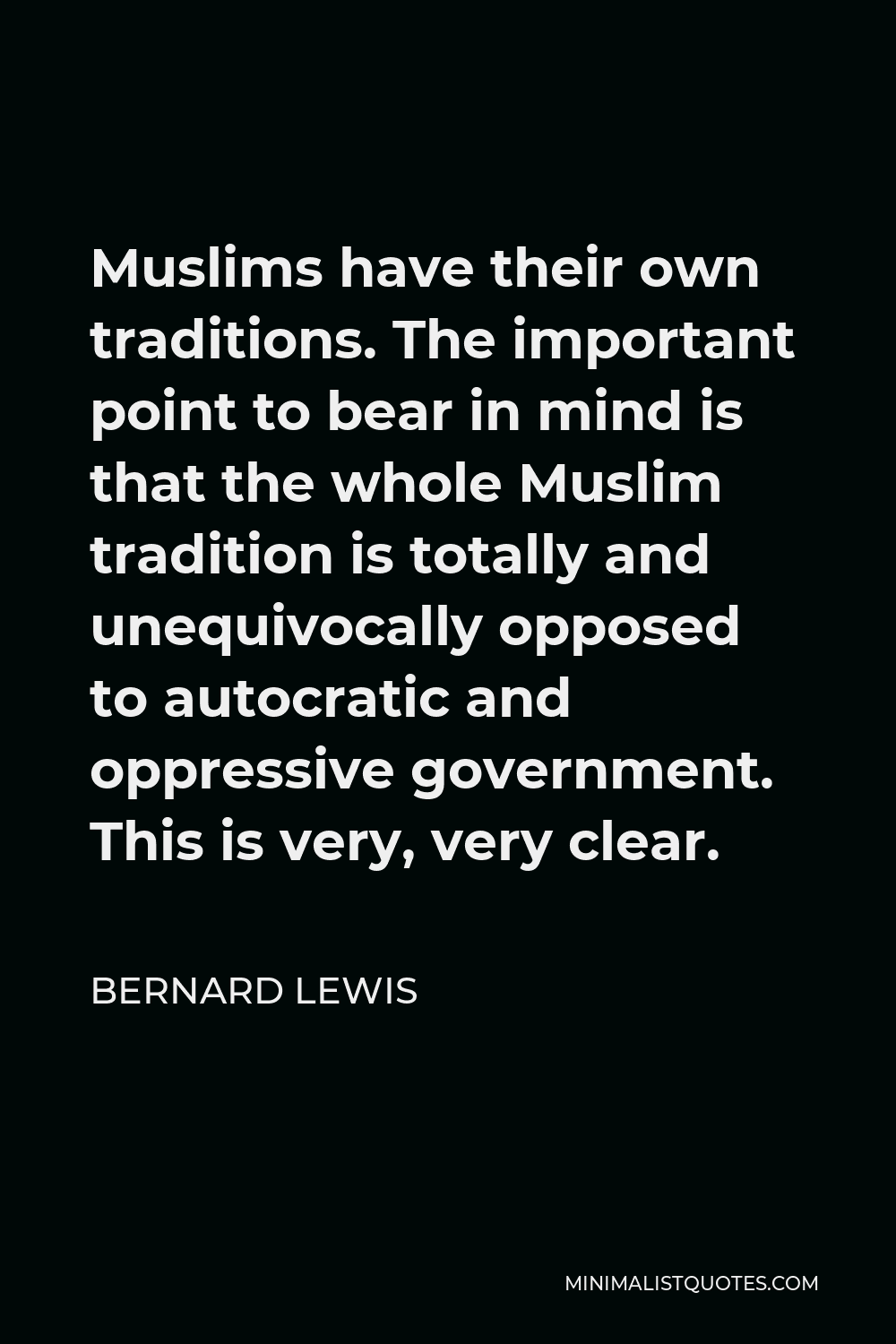
Muslims have their own traditions. The important point to bear in mind is that the whole Muslim tradition is totally and unequivocally opposed to autocratic and oppressive government. This is very, very clear.
BERNARD LEWIS -





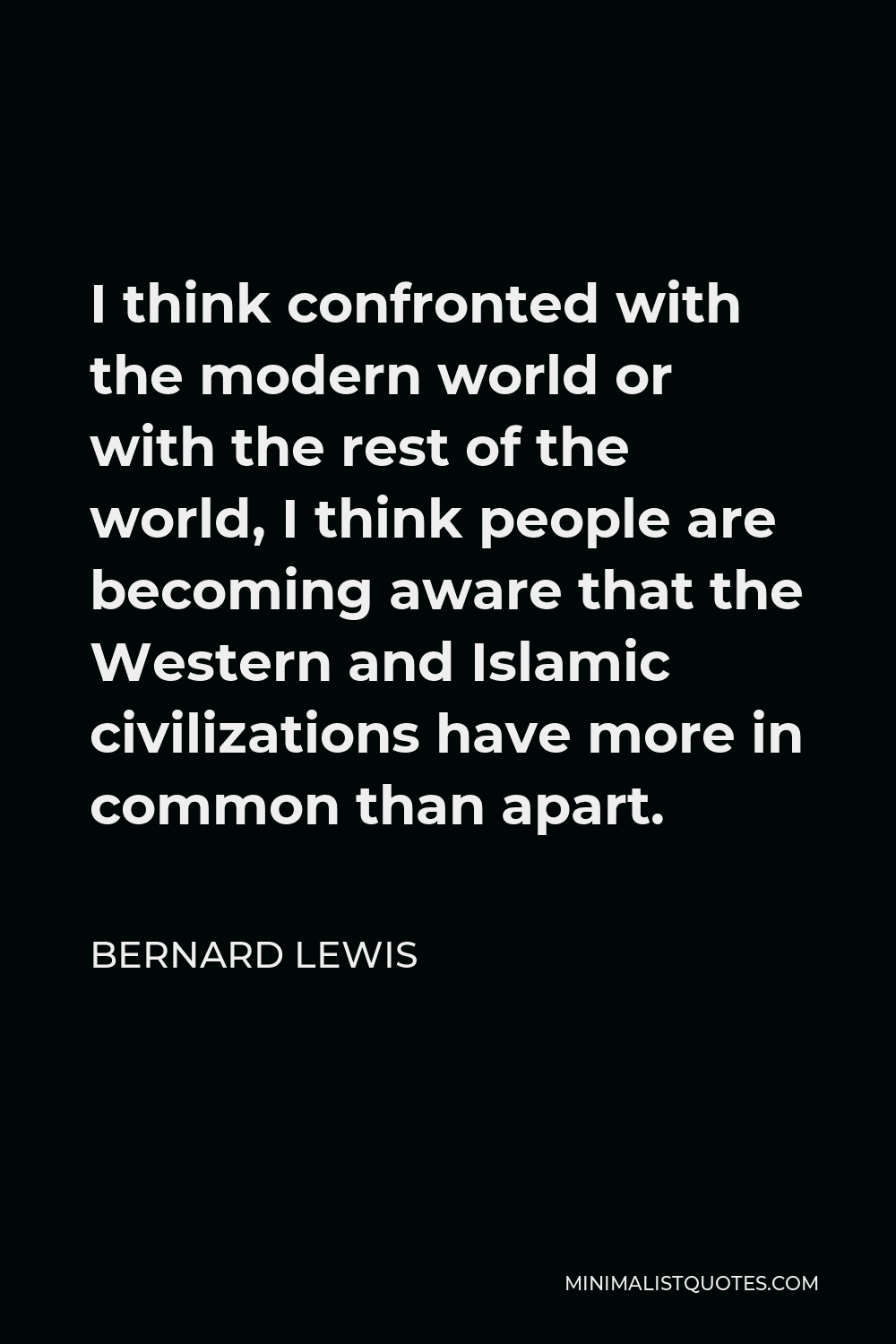
I think confronted with the modern world or with the rest of the world, I think people are becoming aware that the Western and Islamic civilizations have more in common than apart.
BERNARD LEWIS -





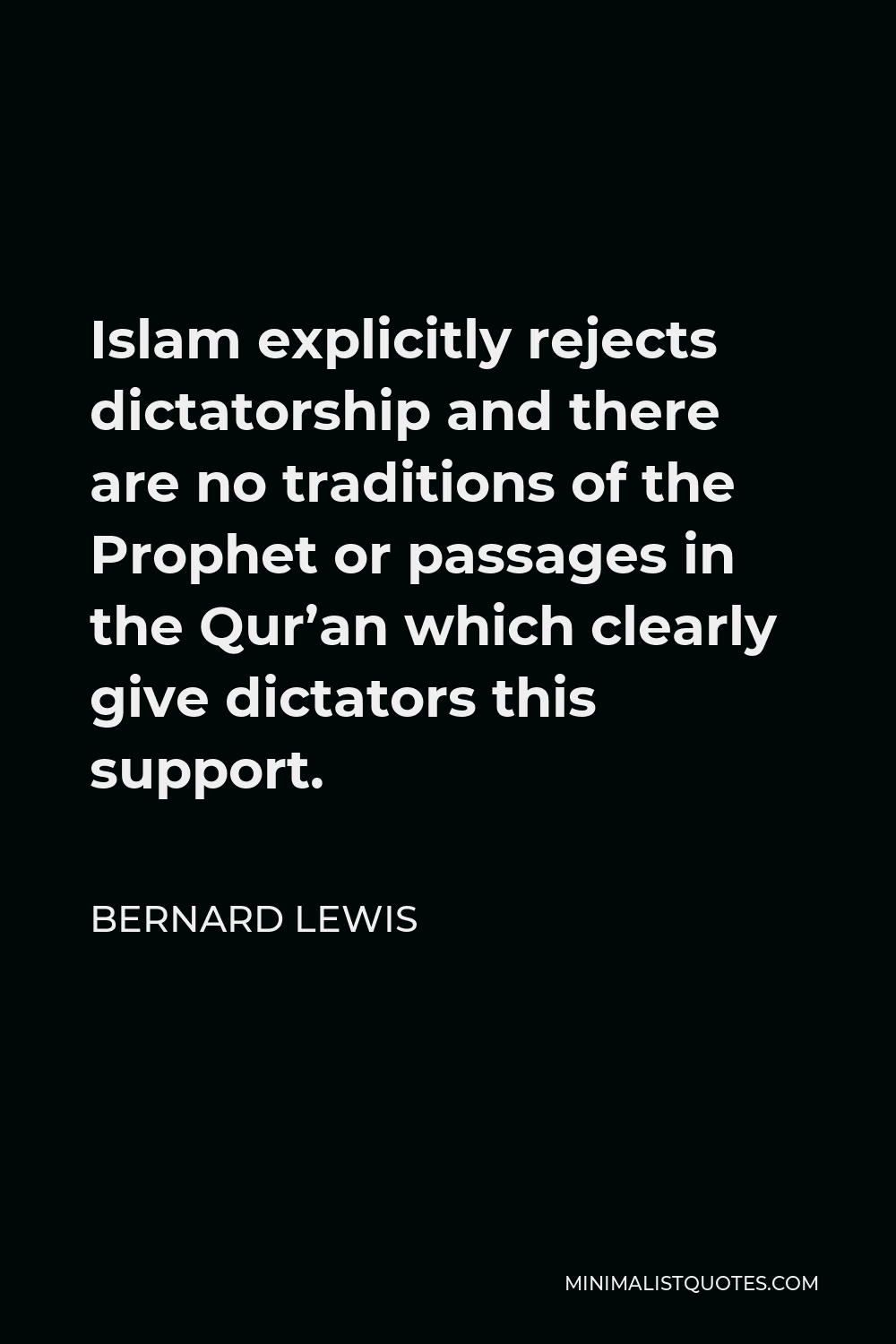
Islam explicitly rejects dictatorship and there are no traditions of the Prophet or passages in the Qur’an which clearly give dictators this support.
BERNARD LEWIS -





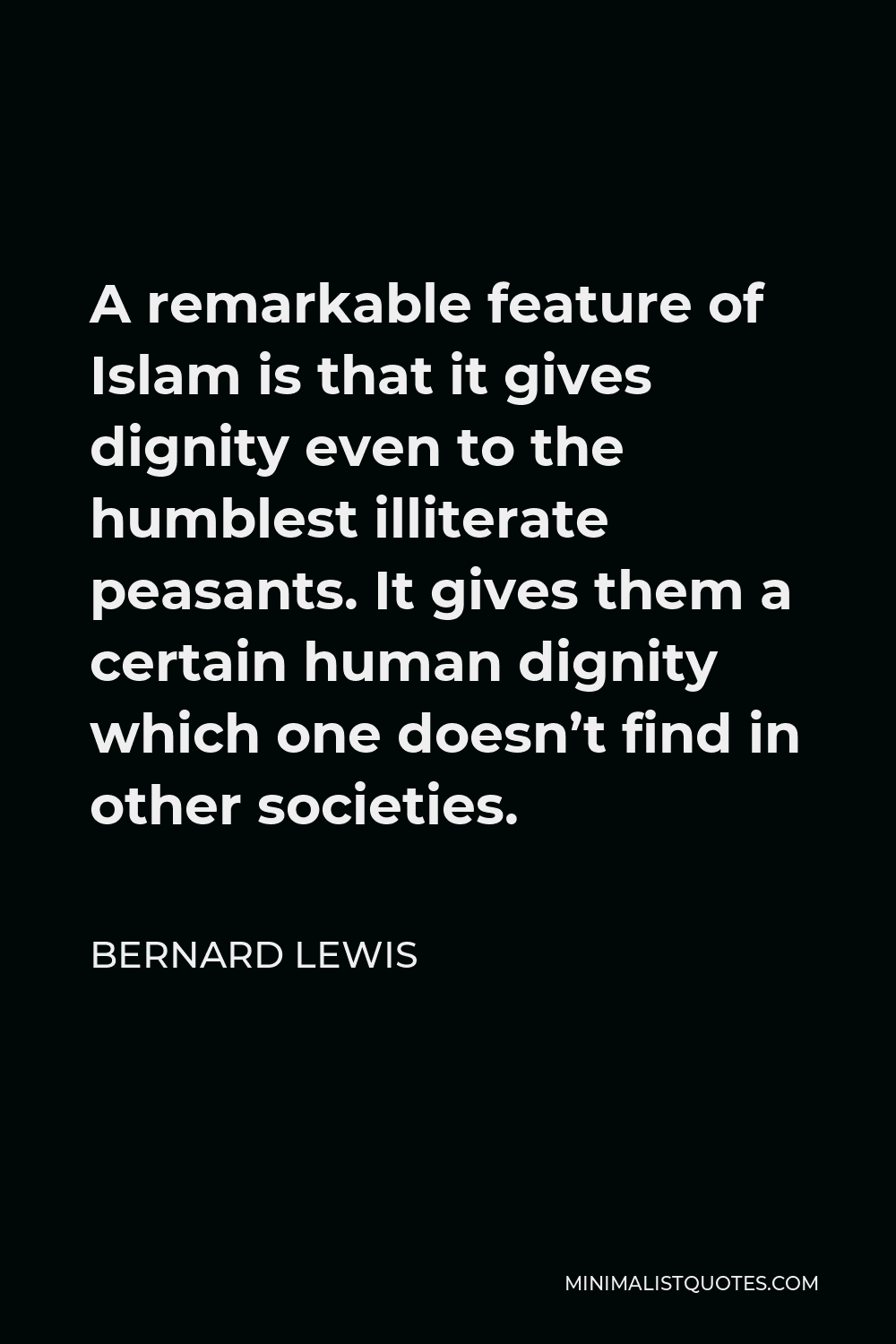
A remarkable feature of Islam is that it gives dignity even to the humblest illiterate peasants. It gives them a certain human dignity which one doesn’t find in other societies.
BERNARD LEWIS -





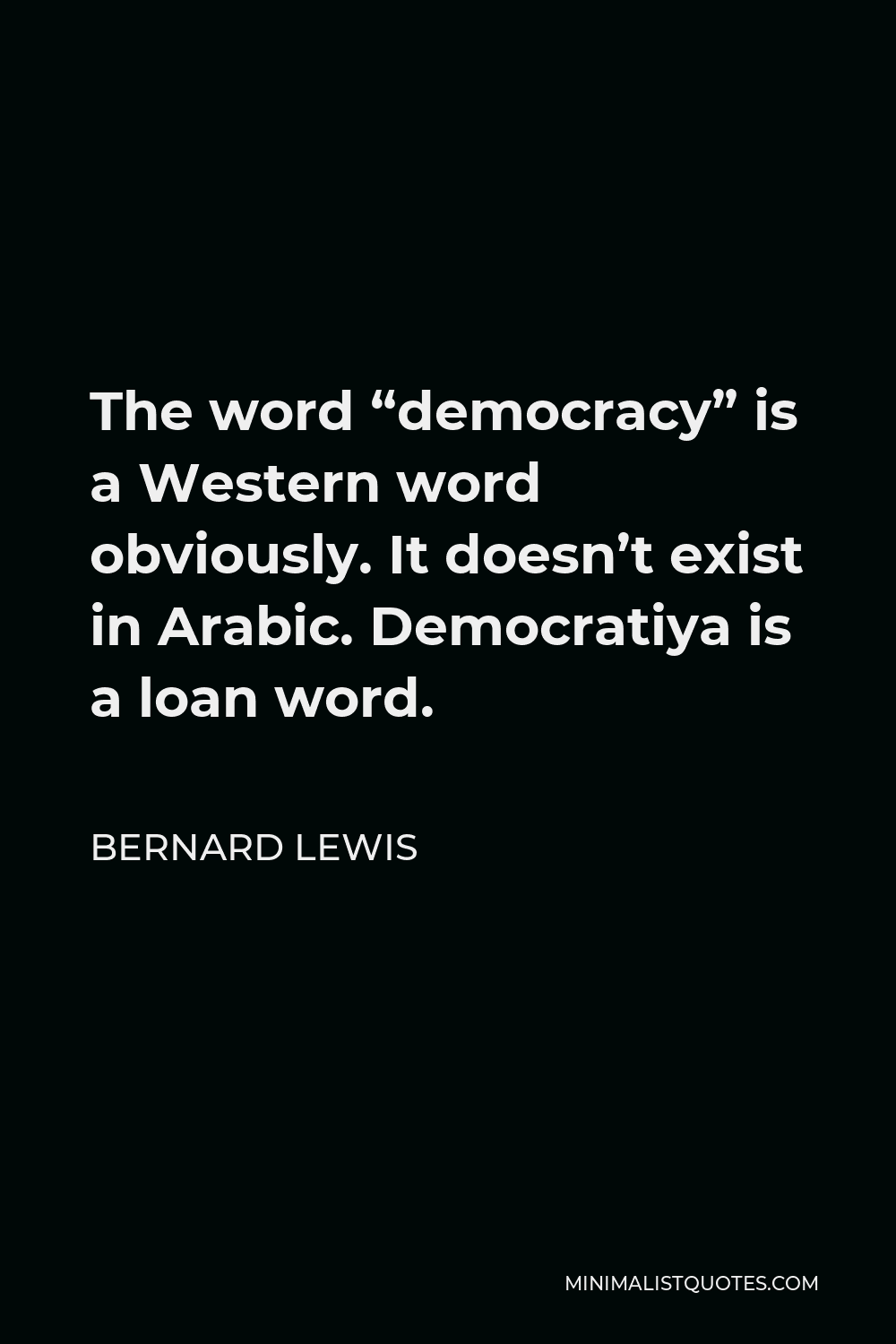
The word “democracy” is a Western word obviously. It doesn’t exist in Arabic. Democratiya is a loan word.
BERNARD LEWIS -





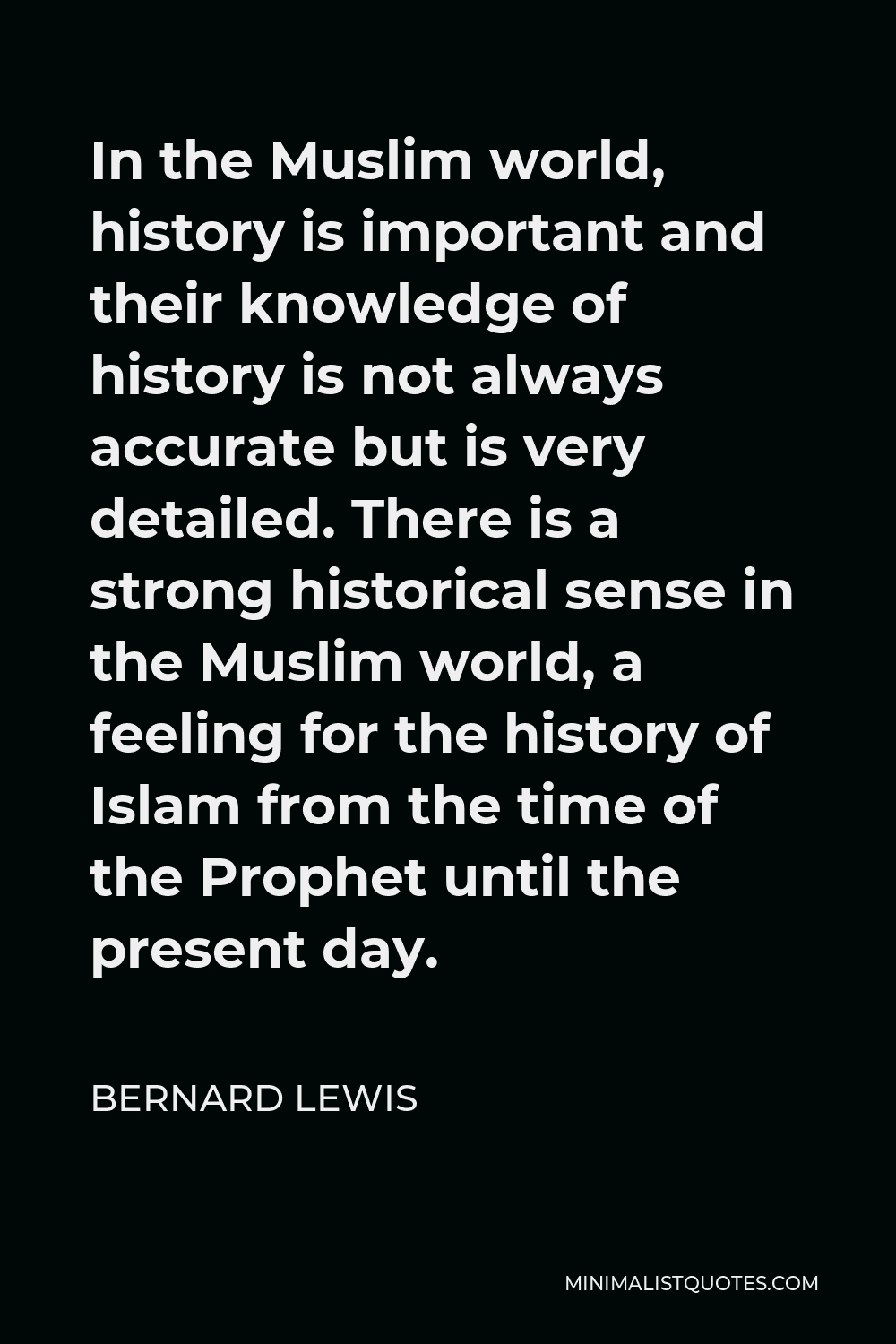
In the Muslim world, history is important and their knowledge of history is not always accurate but is very detailed. There is a strong historical sense in the Muslim world, a feeling for the history of Islam from the time of the Prophet until the present day.
BERNARD LEWIS -





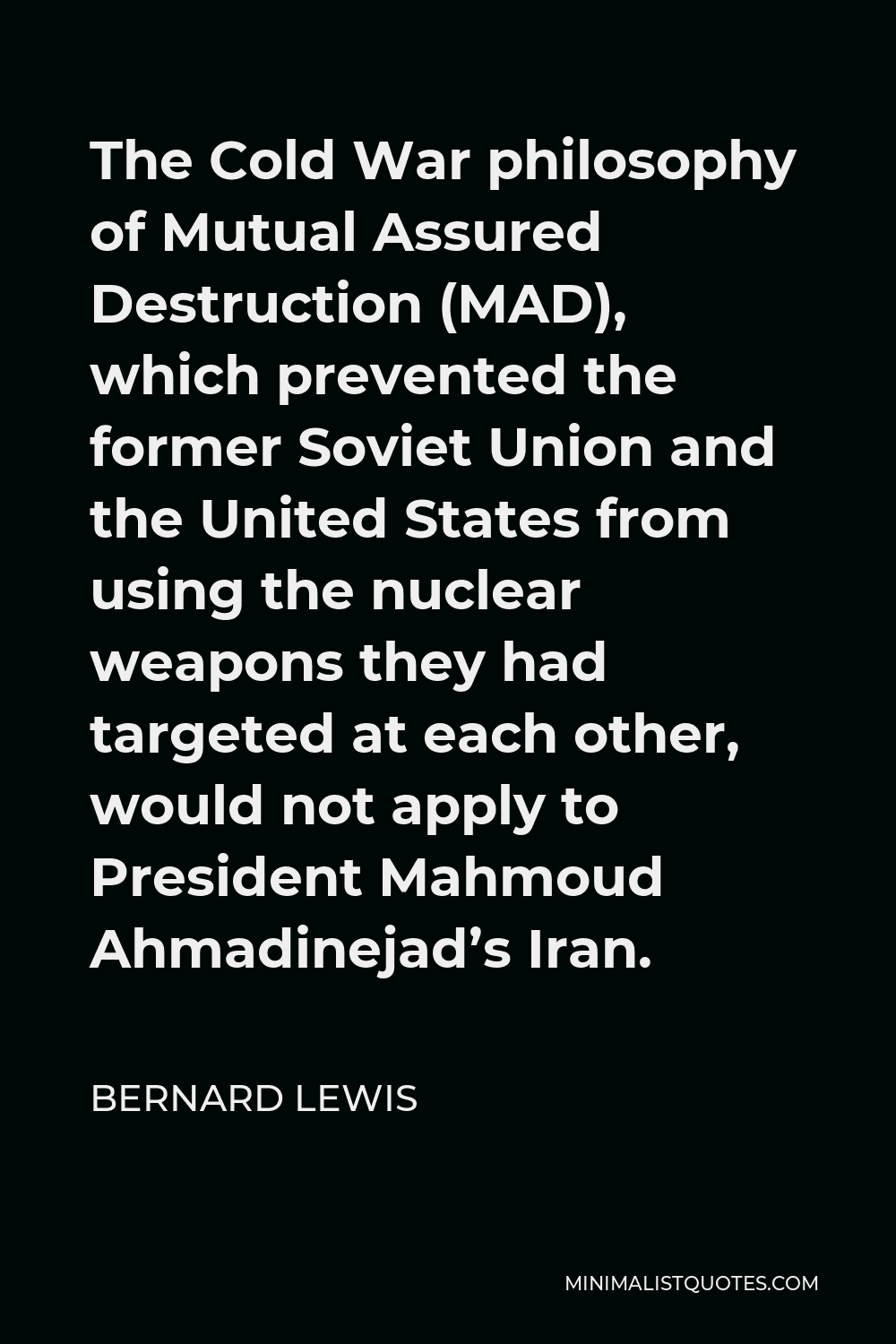
The Cold War philosophy of Mutual Assured Destruction (MAD), which prevented the former Soviet Union and the United States from using the nuclear weapons they had targeted at each other, would not apply to President Mahmoud Ahmadinejad’s Iran.
BERNARD LEWIS -





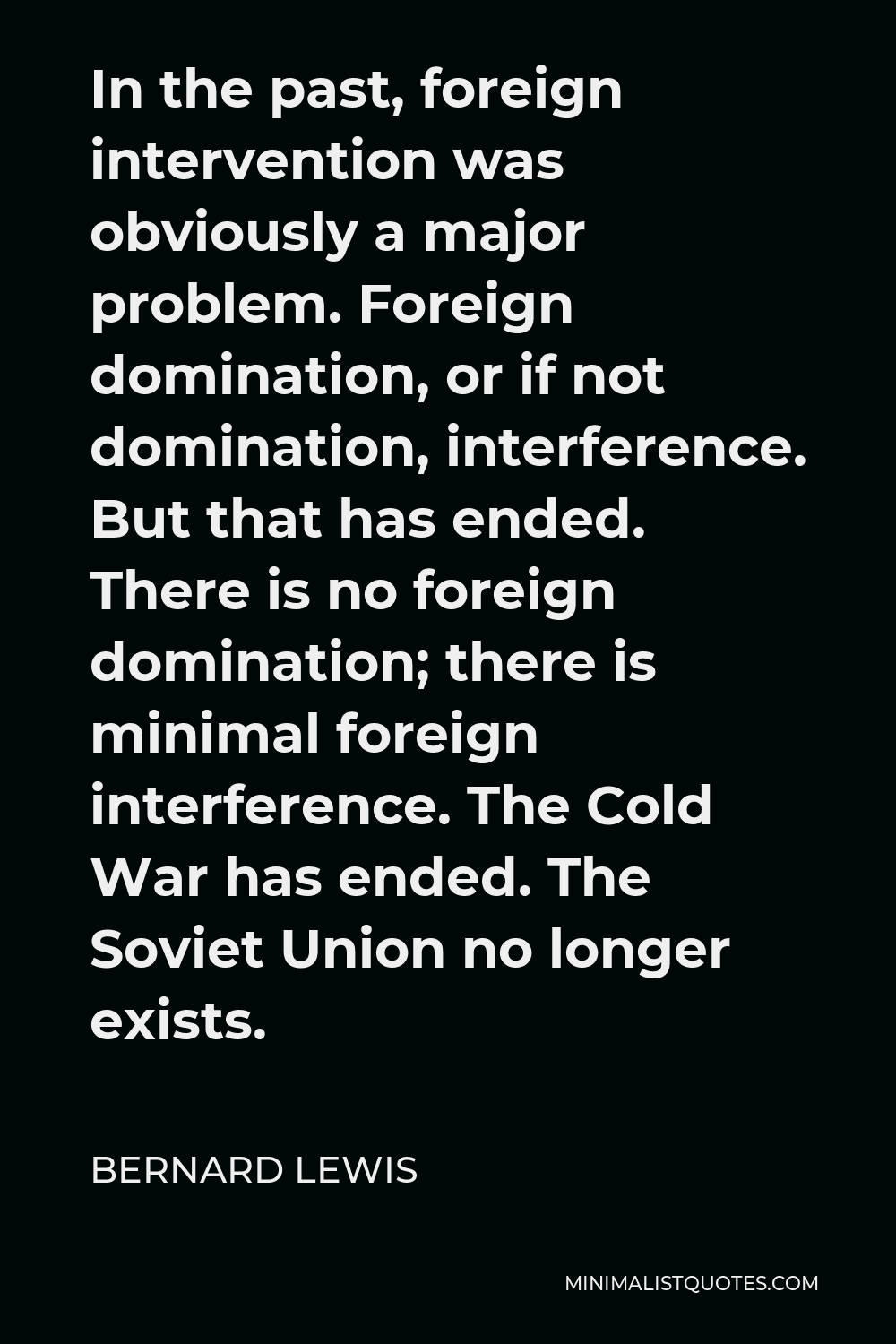
In the past, foreign intervention was obviously a major problem. Foreign domination, or if not domination, interference. But that has ended. There is no foreign domination; there is minimal foreign interference. The Cold War has ended. The Soviet Union no longer exists.
BERNARD LEWIS -





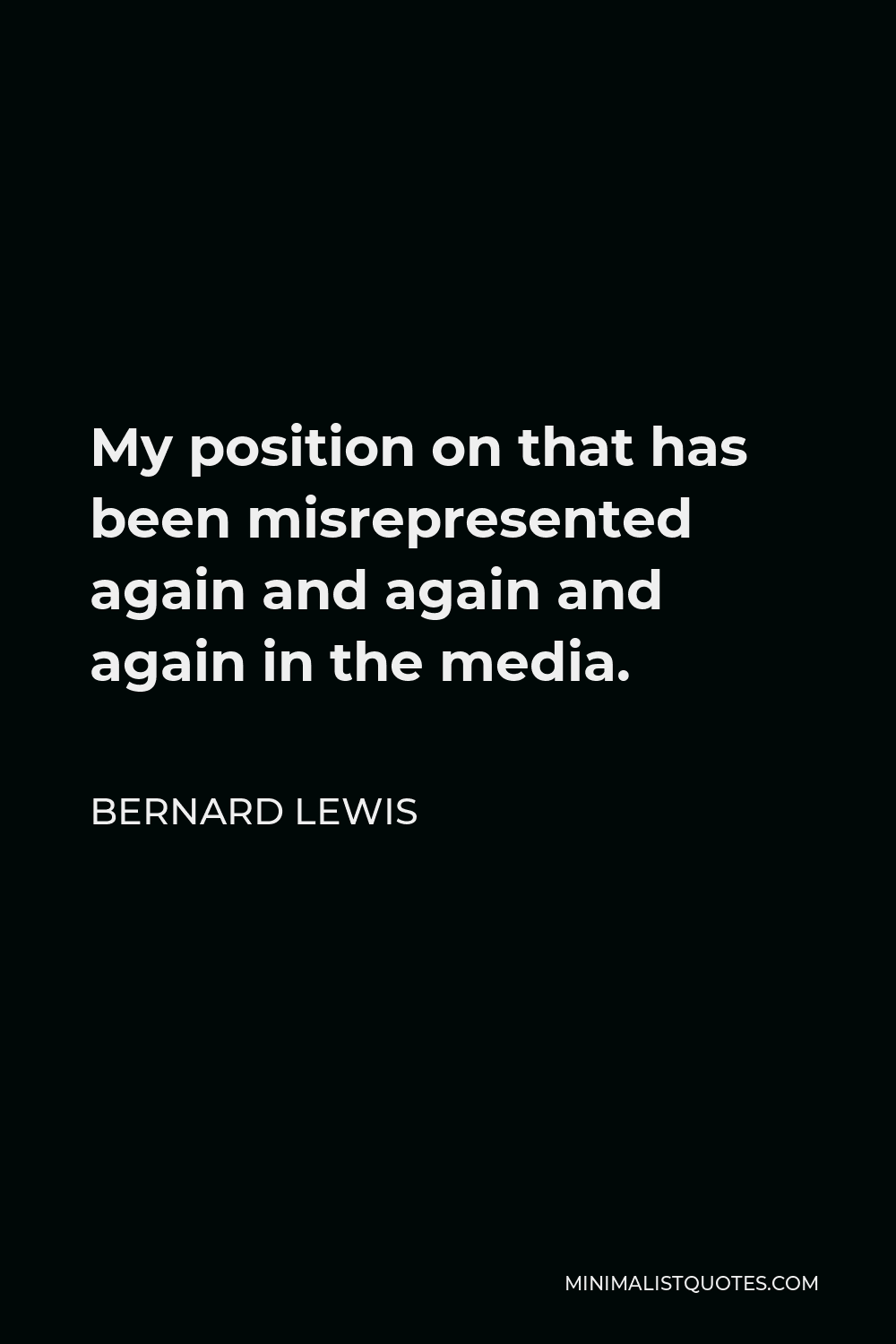
My position on that has been misrepresented again and again and again in the media.
BERNARD LEWIS -





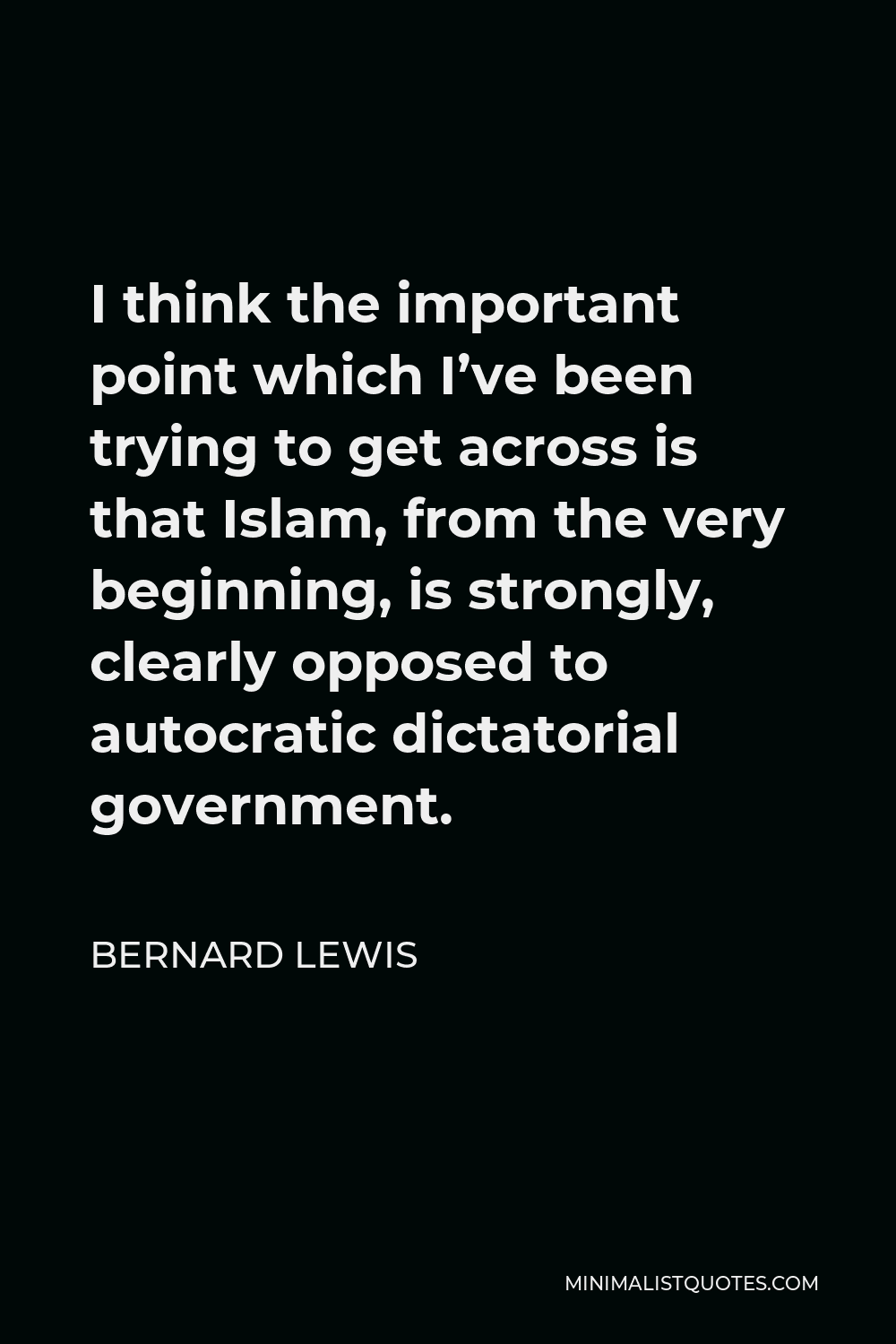
I think the important point which I’ve been trying to get across is that Islam, from the very beginning, is strongly, clearly opposed to autocratic dictatorial government.
BERNARD LEWIS -





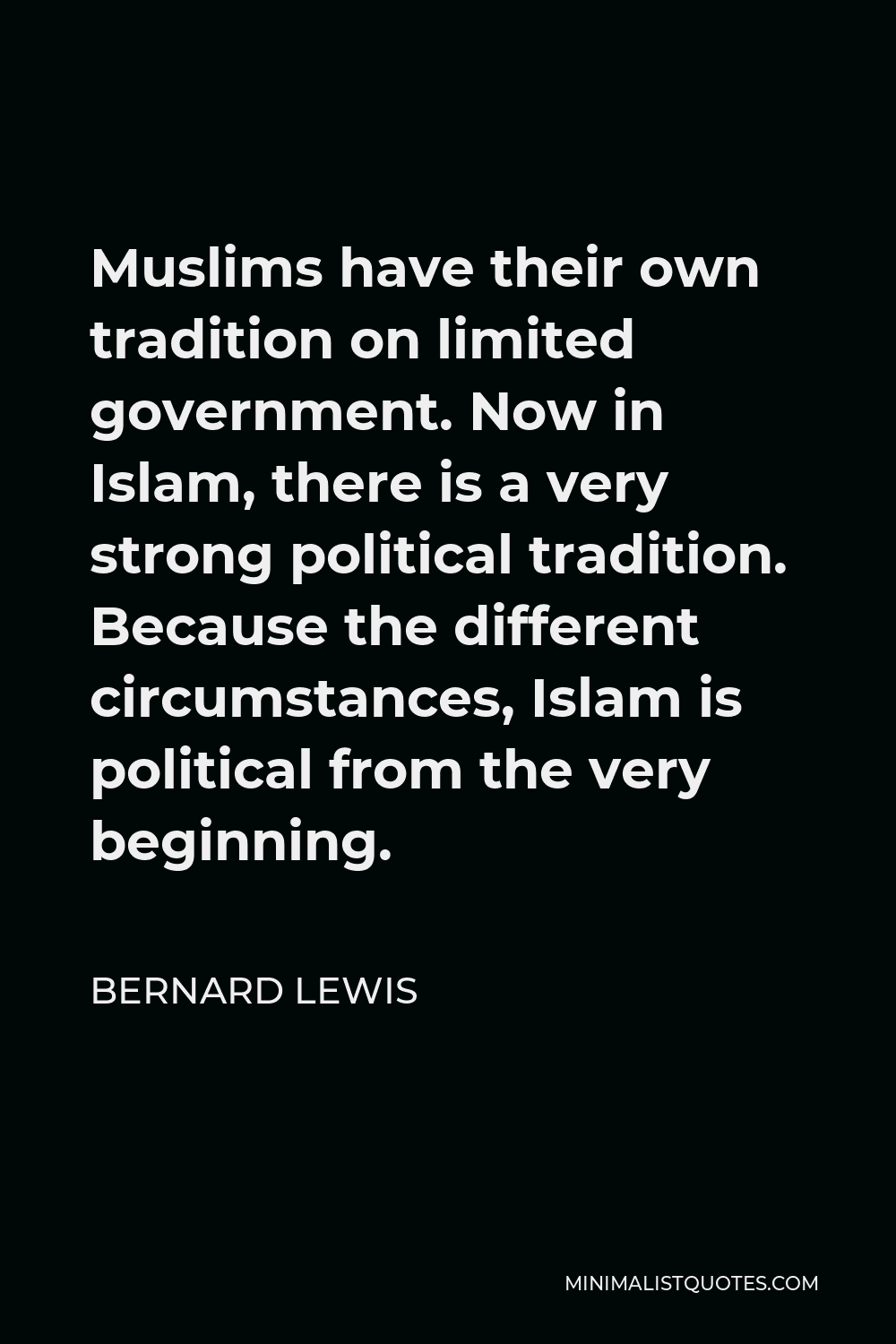
Muslims have their own tradition on limited government. Now in Islam, there is a very strong political tradition. Because the different circumstances, Islam is political from the very beginning.
BERNARD LEWIS

